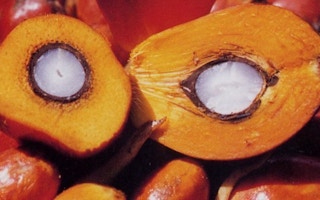Much of the 70 million tonnes of oil palm biomass produced annually is burnt or left to rot.
This waste pollutes rivers through seepage and harms the environment when it produces methane and carbon dioxide.
The Government has realized that oil palm biomass can be as valuable as crude palm oil and has come out with the Oil Palm Biomass Roadmap that will streamline efforts to convert this waste into wealth-generating industries.
Unik, an agency under the Prime Minister’s Department to promote innovation, will undertake this project.
The agency will be collaborating with Dutch consortium BE-Basic to develop Malaysia’s capabilities in using renewable resources for the production of chemicals, materials, products and fuels.
According to BE-Basic director Prof Dr Luuk van der Wielen, oil palm biomass would be able to contribute to the economy by as much as 5% if its use is widened to produce liquid biofuels and biochemicals.
“There’s no technical barrier any more, it’s a matter of making Malaysia attractive for companies to invest in this sector here, a matter of making connections to the plantation sector here,” he said in a recent report.
This development has also attracted foreign chemical companies which have invested by establishing demo-facilities in Malaysia.
Oil palm biomass can be converted into high-value chemicals such as ethanol and even higher value acids such as lactic acid, which is used in a wide range of food applications as well as the cosmetics industry and numerous biochemical processes.
It is also used as a monomer for producing polylactic acid, which has applications in biodegradable plastic.
Dr van der Wielen, who is also a professor at the department of biotechnology at Delft University of Technology, has been working with Universiti Teknologi Malaysia since 2009 to develop sustainable solutions for the chemical and fuel industry.
The Netherlands is the biggest consumer of palm oil in Europe.
The country is also currently the ninth largest export destination for Malaysia and third in the European Union.










